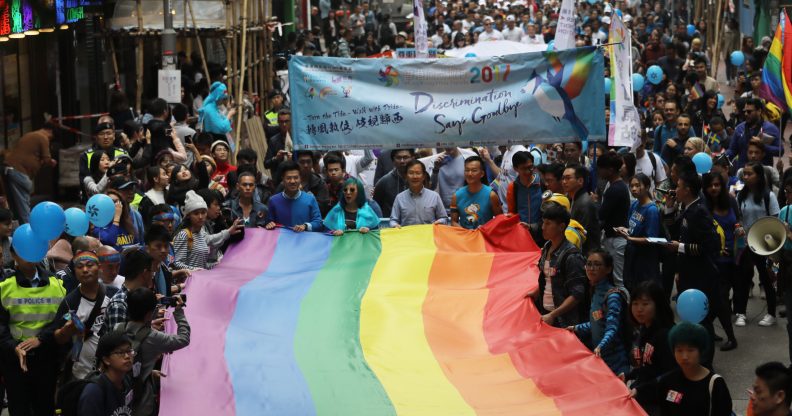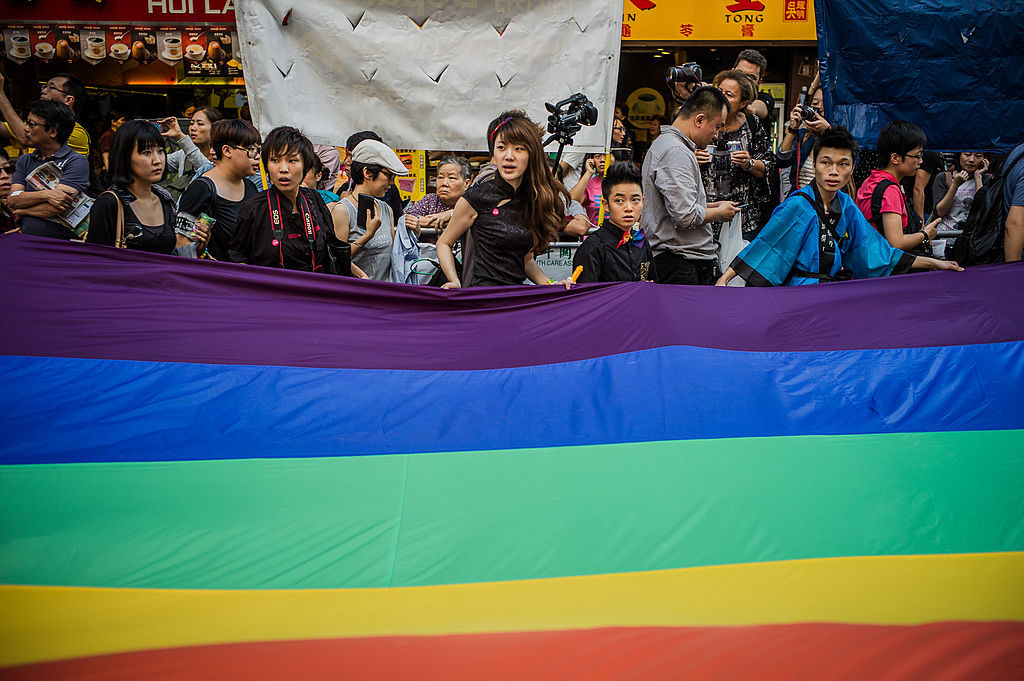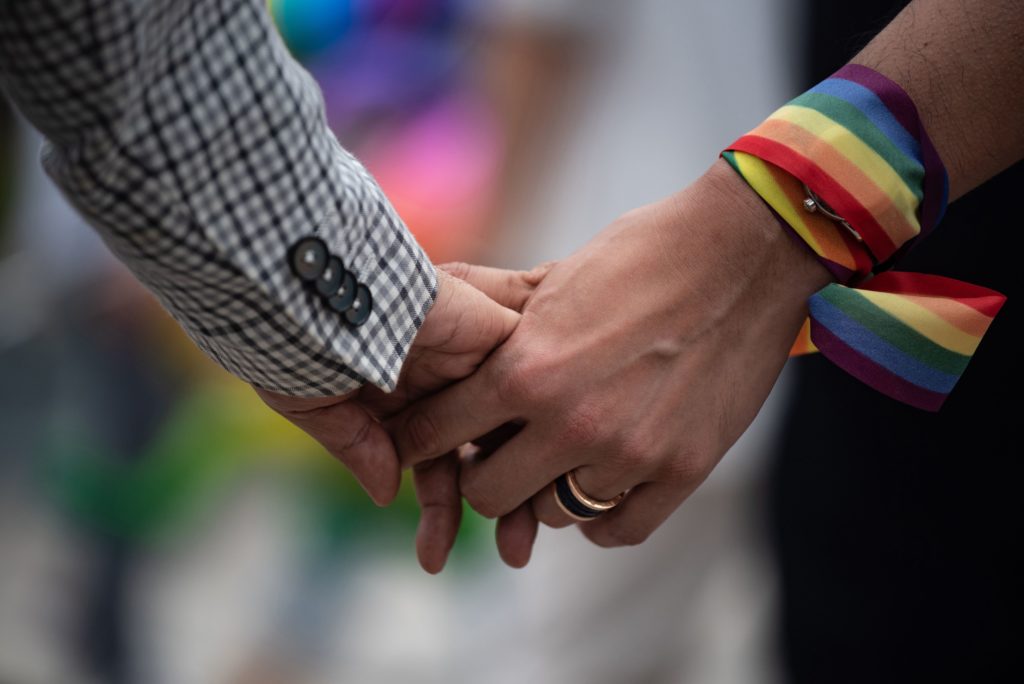Homophobes in Hong Kong fear landmark court victory for queer people will lead to same-sex marriage

Hong Kong, strained by anti-LGBT policies, saw leap towards progress after courts ruled gay couples should have access to public housing programmes. (Edward Wong/South China Morning Post via Getty Images)
Same-sex couples hunting for a place to live in Hong Kong could now have the option for public housing, thanks to a High Court ruling Wednesday.
In a leap forward for the special administrative region that LGBT+ rights dubbed a “triumph” by campaigners, a judicial review considered Hong Kong’s same-sex couples ban on public housing unlawful.
But the outcome of the case, mounted by Nick Infinger and his partner, has drawn criticism from lawmakers. Weary that the ruling may pave the way for the “acknowledgement” of marriage equality, The Standard reported.
What was the case about?
Both permanent residents of the city, Infinger married his partner in Canada in 2018. When applying for public housing as an “ordinary family”, however, the city housing authority rejected them.
The body bizarrely argued that the Oxford English Dictionary definition of the husband is “a married man, especially in relation to his wife”.
Judge Anderson Chow ruled in favour of Infinger, saying the authority was “unable to justify” the difference in treatment between missed and same-sex couples under its spousal policy, according to a court judgement.

(PHILIPPE LOPEZ/AFP/Getty)
Moreover, the judgement continued, a policy which excludes married same-sex couples from the eligibility of applying for public housing is “unlawful and unconstitutional”.
As marriage equality is not the law in Hong Kong, the judge ruled that the housing authority’s decision violated the territory’s mini-constitution – the Basic Law – which guarantees equality for all residents. It also enshrines protections from discrimination.
The housing authority legal counsel previously argued that the government was entitled to deny housing to same-sex couples because there is insufficient accommodation for low-income citizens.
Counsel also argued same-sex couples can apply as individuals, but the incurring wait could be as much as 17 years until being housed.
Could the Hong Kong housing authority appeal?
Yes, activists warn. The authority has yet to formally issue an appeal but the potential looms.
A pair of prominent pro-government lawmakers have called on the government to lodge an appeal, believing the case threatens current policy around marriage which is strictly defined as mixed-sex.
Holden Chow, a lawmaker from the pro-Beijing Democratic Alliance for the Betterment and Progress of Hong Kong denounced the ruling.
Chow claimed he has received feedback from individuals and groups against LGBT+ rights, touting their “grave concern” over the handed down the ruling.

A same-sex couple at event to raise awareness of LGBT+ rights in Hong Kong (Philip Fong/AFP/Getty)
“There is a perception and a fear within the public that the decision handed down by the court today would acknowledge,” Chow said, ” same-sex marriage in Hong Kong.”
Business and Professionals Alliance for Hong Kong lawmaker Priscilla Leung joined the chorus of criticism, saying: “We need a public discussion, not the court, to decide on our marriage system.”
Only last year did the courts strike down a challenge to government policy which denies civil partnerships to LGBT+ people
‘Today must be a wake-up call to the Hong Kong government,’ says leading advocacy group.
While the possibility of an appeal clouds the judgement, activists have called the court case a “wake-up call” in a path to marriage equality.
“This ruling is a triumph for equality and LGBTI rights, and a significant step forward in the fight against discrimination at the highest levels of Hong Kong society,” Amnesty International Hong Kong director Man-Kei Tam said in a news release.
“The Hong Kong government’s refusal to provide public housing to two married men based purely on their sexual orientation is a despicable affront to their human rights. No one should face discrimination because of who they are or who they love.
“After the High Court’s welcome intervention, the authorities must ensure housing applications from same-sex couples are treated exactly the same as everyone else’s.
“Today must be a wake-up call to the Hong Kong government, which must urgently review all its laws and policies to ensure no one else faces discrimination based on their sexual orientation, gender identity or intersex status.”

